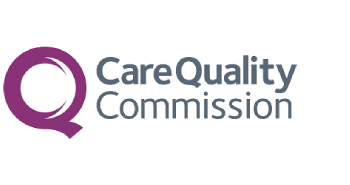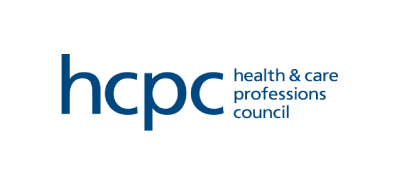Attention Deficit Hyperactivity Disorder (ADHD) affects many people, impacting focus, behaviour, and overall well-being. While medication and therapy are common treatment methods, research increasingly highlights the role of nutrition in managing ADHD symptoms. Understanding how food choices influence behaviour can help individuals and families affected by ADHD to take proactive steps toward better health.
This article explores the link between ADHD and nutrition, examining how diet affects symptoms, recommended foods, and common nutritional deficiencies. By the end, you’ll have practical insights into managing ADHD through dietary adjustments.
What Is ADHD?
ADHD is a neurodevelopmental disorder characterised by inattention, impulsivity, and hyperactivity. It typically begins in childhood but can persist into adulthood. Common symptoms include difficulty focusing, restlessness, and impulsive behaviour.
While ADHD has no cure, its symptoms can be managed through a combination of medical treatments, behavioural therapies, and lifestyle changes—including diet.
The Role of Nutrition in ADHD Management
Research suggests that diet can influence ADHD symptoms through various mechanisms. Certain nutrients support brain health, while some foods may worsen behavioural issues.
How Food Affects the Brain
The brain requires a steady supply of essential nutrients to function properly. Deficiencies in key vitamins and minerals can disrupt neurotransmitter production, potentially exacerbating ADHD symptoms. Conversely, a balanced diet can stabilise mood, improve concentration, and support overall mental health.
Key Nutrients for ADHD Management
- Omega-3 Fatty Acids: Found in fatty fish, walnuts, and flaxseeds, omega-3s are crucial for brain health and have been linked to improved attention and reduced hyperactivity.
- Protein: Sources like lean meats, eggs, beans, and tofu can help maintain steady blood sugar levels and support neurotransmitter production.
- Iron: Low iron levels may worsen ADHD symptoms. Include iron-rich foods such as red meat, spinach, and fortified cereals.
- Zinc: This mineral plays a role in regulating dopamine, a neurotransmitter linked to attention and behaviour. Sources include meat, dairy, and pumpkin seeds.
- Magnesium: Known for its calming effect, magnesium can help manage hyperactivity. Foods like nuts, leafy greens, and whole grains are good sources.
- B Vitamins: B6, B12, and folate support brain health and energy production. Include whole grains, eggs, and leafy vegetables in your diet.
Foods to Avoid
Certain foods may trigger or worsen ADHD symptoms:
- Sugary Snacks: Excessive sugar can cause blood sugar spikes and crashes, leading to irritability and difficulty concentrating.
- Artificial Additives: Food dyes, preservatives, and artificial flavours may negatively impact behaviour in some individuals.
- Caffeine: While caffeine can increase alertness, it may also cause restlessness and worsen anxiety.
- Processed Foods: High in unhealthy fats and low in nutrients, processed foods can contribute to poor overall health.
Special Diets for ADHD
Several dietary approaches have been explored for managing ADHD:
- The Mediterranean Diet: Emphasising whole foods, healthy fats, and lean proteins, this diet supports overall brain health.
- Elimination Diets: These involve removing potential allergens or triggers, such as gluten or dairy, to observe improvements.
- Low-Glycaemic Diets: Focusing on complex carbohydrates can prevent blood sugar fluctuations linked to behavioural issues.
- The Feingold Diet: This diet involves removing artificial colours, flavours, and preservatives, focusing on natural and unprocessed foods.
- Ketogenic Diet: Although more restrictive, this high-fat, low-carb diet has shown potential in managing some neurological conditions, though more research is needed for ADHD.
Lifestyle Factors Beyond Diet
While nutrition plays a significant role, other lifestyle adjustments can also support ADHD management:
- Regular Exercise: Physical activity boosts dopamine and serotonin, aiding focus and reducing hyperactivity.
- Sleep Hygiene: A consistent sleep schedule helps regulate mood and improve cognitive function.
- Mindfulness Practices: Techniques like meditation and yoga can help manage impulsive behaviour and anxiety.
- Routine and Structure: A predictable daily routine can provide stability and reduce stress.
Practical Tips for ADHD-Friendly Meals
- Plan Ahead: Create weekly meal plans to avoid reliance on convenience foods.
- Healthy Snacks: Stock up on nuts, fruit, and yoghurt.
- Limit Processed Foods: Cook from scratch when possible.
- Stay Hydrated: Encourage drinking water instead of sugary drinks.
- Involve the Family: Engage children in meal preparation to increase interest in healthier foods.
- Regular Meal Times: Consistent eating schedules can help regulate mood and energy levels.
FAQs about ADHD and Nutrition
KPI:Access
KPI:Access offers private ADHD assessments and diagnoses for children and adults. Our team, of neurodevelopmental specialists each with extensive experience in assessing and treating neurodevelopmental disorders
Why Choose KPI:Access?
Fast Appointments: No GP referral needed—book directly and be seen quickly.
Comprehensive Assessments: Our specialists conduct thorough evaluations to understand your or your child’s needs.
Expert Care: Our team’s expertise ensures accurate diagnoses and tailored support plans.
No Exclusions: We assess every child referred to us.
If you’re seeking a professional ADHD assessment, contact KPI:Access today to learn how we can support you and your family.





